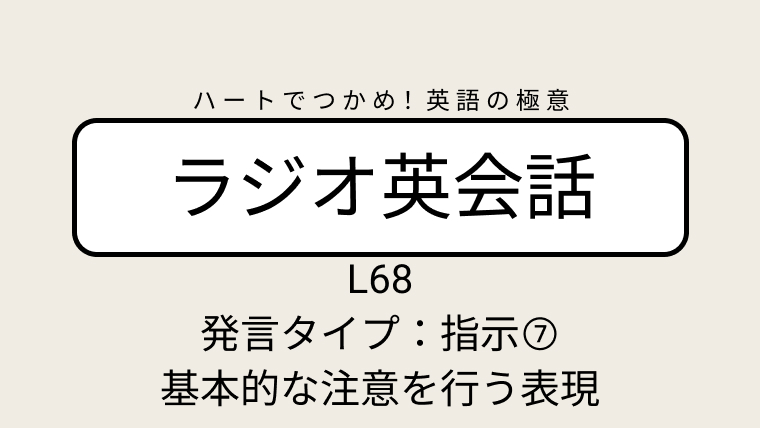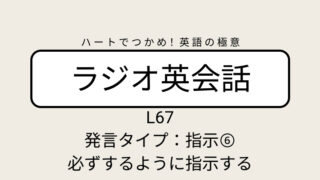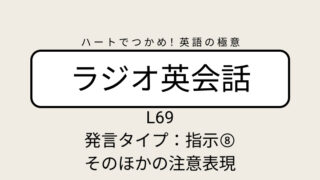NHKラジオ英会話のディクテーション「発言タイプ:指示⑦・・・基本的な注意を行う表現」L68 2023/7/12

ディクテーション
講師陣の英会話を書きとり(スクリプト)
大西先生、ディビッドさん、ろーざさんの英会話部分を書きとってみましょう!(大西先生のギャグもできるだけ書きとります。)
Opening
Ohnishi: いやぁこの間ですねぇ、Davidさんに五十肩になっちゃったよ、と言ったらですねぇ、肩だけ若返ってよかったね、と言われました。うるさいわ。
ラジオ英会話、ハートでつかめ英語の極意、講師の大西泰斗です。
Roza: まぁそればかりは、シカタがないですね。Hey everyone. Akino Roza here.
David: And I'm David Evans. Your puns ??? are excessive but I'll shoulder that burden show ???.
Ohnishi: さぁそれではさっそく、始めていきましょう。
うーん、全然分からない・・・
→ pun で「だじゃれ」だそうです。ツィッターで教えてもらいました。
ダイアログ和訳の後
Practice 9:43
David: All right everyone. It's time for practice. Are you ready to go?
Roza: I am. Let's go.
David: These first three use "shouldn't", but you don't need to release the "t", shouldn't ask, shouldn't interrupt. Let's try together.
- You shouldn't ask personal questions.
- You shouldn't interrupt people.
- You shouldn't come here uninvited.
Roza: OK, now for these next few examples, I want us to try practicing with emphasis on the "not" in the sentence, OK? So, let's try together.
- Don't let your guard down.
- You mustn't let your guard down.
- You had better not let your guard down.
That was great, guys.
David: These next phrases us "not to". Listen to the "not - to". We have two "t" sounds in a row. This can be difficult to pronounce. So, let's combine them. Tow become one … "not to, not to". All right, let's practice.
- Be careful not to leave anything behind.
- Try not do leave anything behind.
- Remember not to leave anything behind.
Roza: OK, let's do two more with "not to".
- It's better not to worry about that.
- It's best not to worry about that.
Excellent work guys.
David: Great job.
Ending
Ohnishi: Hey guys, "offensive" is an important word, isn't it?
David: Yes, that's right. We here it a lot in daily conversation.
Roza: Yeah, I agree with Dave.
Roza: Please don't call me Dave. I found it highly offensive.
Roza: Si?
Ohnishi: さ、offensive にならないように、注意が必要のようですね。というわけで、今日はこの辺で。
All: Bye.
シー、って言ってますが・・・フランス語なら yes ということなんですが、よく分からない。
~ ディクテーションした内容やその解釈などに、聞き間違いや認識違いがある可能性はあります。ご了承ください


